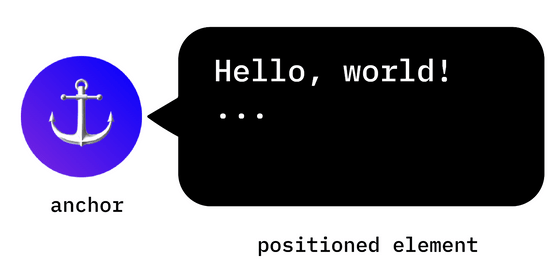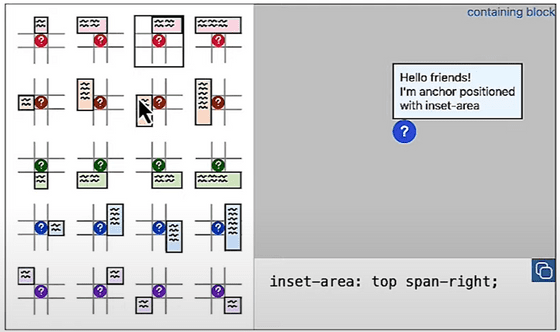'Google Chrome 125' stable release, Anchor positioning introduced, making it possible to position elements based on the position of another element

The latest stable version of the web browser ' Google Chrome ', version 125, has been released. In addition to the availability of 'Anchor positioning', which allows you to position an element based on the position of another element, the Compute Pressure API, which reports CPU load to apps, and CSS functions that allow you to round numbers and find remainders have been introduced.
New in Chrome 125 | Blog | Chrome for Developers
New in Chrome 125: CSS anchor positioning, Compute Pressure API and more - YouTube
◆ Anchor positioning is now available with CSS
The Anchor positioning API has been introduced, which allows you to position one element based on the position of another.

In addition to being able to position elements diagonally or in any direction, you can set the direction in which they extend beyond the base element. If you have updated to Chrome 125, you can check the operation on

◆Compute Pressure API now available
The Compute Pressure API has been released as an API that provides a high-level status that indicates the CPU load of a system. It is intended for use in video conferencing apps and gaming apps, and allows apps to take measures such as lowering the quality of the screen depending on the load.
◆Storage Access API now supports access to more than just cookies
The Storage Access API was introduced as an alternative to cross-site cookies, providing access to third-party cookies for content embedded in another site through an iframe, etc. Starting with Chrome 125, it also allows access to storage other than cookies, such as indexedDB and localStorage.

◆ Support for ' round() ', ' mod() ', and ' rem() ' in CSS
The round() function allows you to round numbers by rounding up, down, or up, while the mod() and rem() functions allow you to find the remainder. The difference between them is that the mod() function maintains the sign of the divisor, while the rem() function maintains the sign of the dividend.
◆Other updates
Device Posture API and Viewport Segments API for foldable devices begin origin trials
- An iframe is no longer required when running cross-origin worklets with the Shared Storage API
The next stable version, Google Chrome 126, is scheduled to be released on June 11, 2024 local time.
Related Posts:
in Software, Posted by log1d_ts







